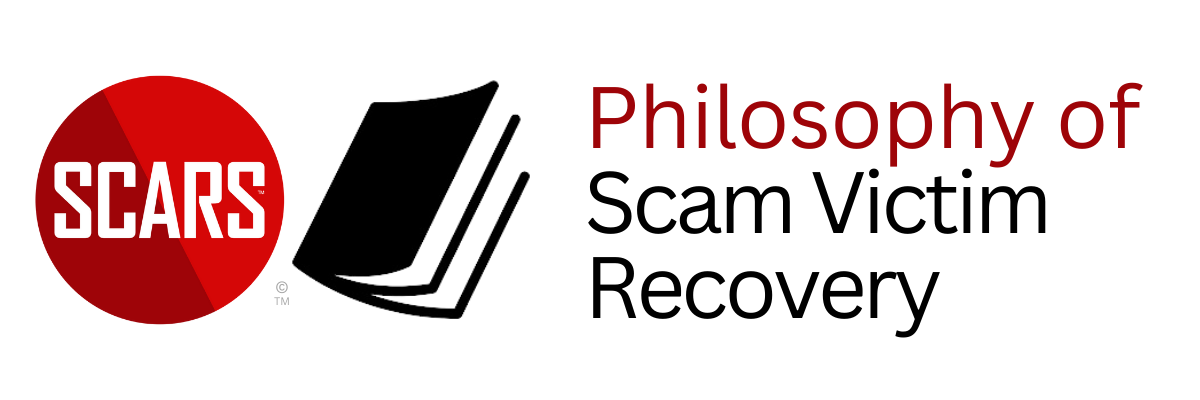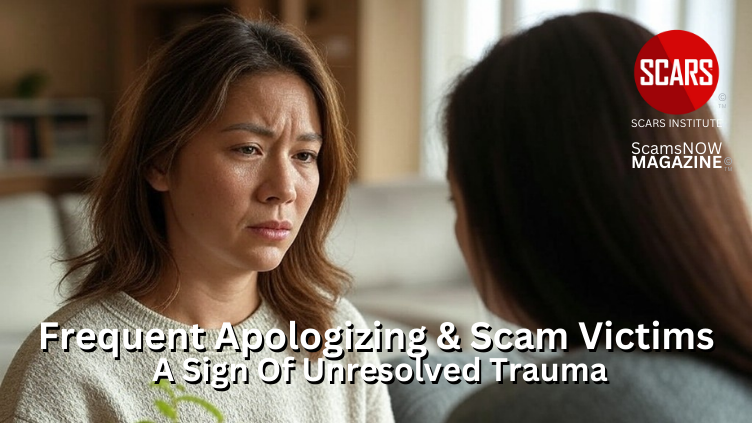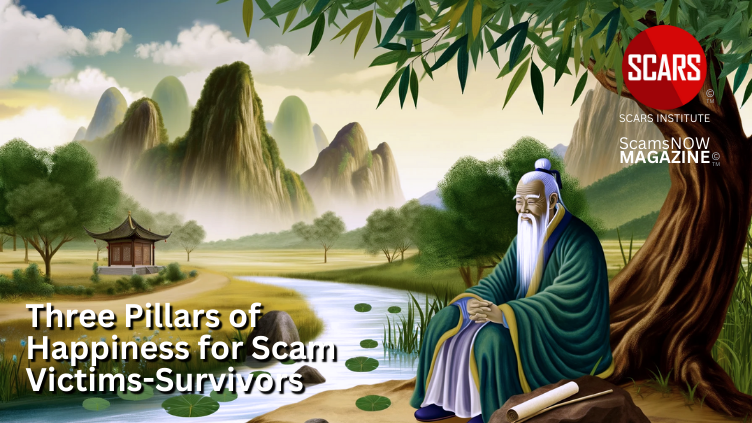Three Pillars of Happiness for Scam Victims-Survivors
The Three Pillars of Happiness for Scam Victims-Survivors – A Quick Guide to Finding Purpose and Fulfilment
Primary Category: Recovery Philosophy
Intended Audience: Scam Victims-Survivors / Family & Friends
Author:
• Tim McGuinness, Ph.D. – Anthropologist, Scientist, Director of the Society of Citizens Against Relationship Scams Inc.
• Thanks to Jonny Thomson for the inspiration
About This Article
The journey to recovery for scam victims-survivors is both personal and transformative, guided by three pillars of happiness: redefining happiness, embracing moderation, and cultivating virtue. Rooted in the philosophies of Daoism and Confucianism, these principles emphasize finding fulfillment through purpose, balance, and self-cultivation.
True happiness is not about fleeting pleasures but about facing trauma, rebuilding confidence, and finding long-term accomplishment. Moderation helps survivors regain control by avoiding extremes and fostering patience, while virtue focuses on healing oneself before helping others. Together, these pillars provide a roadmap for recovery, encouraging survivors to grow stronger and wiser through their experiences. By embracing these timeless teachings, survivors can rebuild their lives with resilience and purpose.

The Three Pillars of Happiness for Scam Victims-Survivors – A Quick Guide to Finding Purpose and Fulfilment
The journey to recovery after being scammed is deeply personal and transformative for scam victims-survivors.
It requires a commitment to redefining happiness, embracing balance, and cultivating moral and emotional strength. Rooted in the timeless wisdom of Daoism and Confucianism, the SCARS Institute offers a guiding framework for scam survivors: the three pillars of happiness.
These principles:
- Happiness as fulfillment
- Moderation as balance
- Virtue as self-cultivation
These are essential steps toward healing and rebuilding your life.
Happiness Is Not Pleasure
Modern culture often equates happiness with pleasure—fleeting moments of enjoyment, material gains, or external validation. However, true happiness lies deeper.
Daoist wisdom reminds us:
“Be content with what you have; rejoice in the way things are. When you realize there is nothing lacking, the whole world belongs to you.” – Laozi
For scam survivors, this means shifting your focus from external sources of happiness to internal ones. The pain and trauma of being scammed can leave you feeling disillusioned and distrustful. Healing begins when you let go of the pursuit of temporary distractions and instead invest in long-term fulfillment, such as regaining your self-esteem (Axios) and achieving personal goals.
Confucius, too, highlights the importance of inner satisfaction:
“The superior man is satisfied and composed; the mean man is always full of distress.”
Happiness comes not from ignoring the trauma but from facing it head-on and working toward recovery with purpose. Accomplishment and progress in this journey offer a sense of fulfillment that external pleasures cannot match. The act of reclaiming your life and rebuilding your confidence is where true happiness resides. It is not about avoiding pain but transforming it into a source of strength.
Moderation: Finding Balance Within
Moderation is a cornerstone of Daoist and Confucian teachings. Daoism emphasizes harmony with the natural flow of life, avoiding extremes that disrupt peace and stability.
Laozi advises:
“He who knows that enough is enough will always have enough.”
In recovery, moderation means focusing on yourself, your needs, and your well-being without becoming overwhelmed or distracted. It involves taking consistent steps to heal without rushing the process or succumbing to despair. Scam survivors often struggle with feelings of anger, shame, helplessness, or the need to control, but moderation helps channel these emotions constructively.
Confucius reinforces this principle with his teaching:
“The superior man… makes sure that moderation is his guide.”
Balance is not achieved overnight. It requires patience and practice to realign your life after a traumatic event. Moderation encourages you to step back, prioritize your mental and emotional health, and resist the urge to swing between extremes—such as obsessing over the scam or completely ignoring its impact.
When you practice moderation, you learn to trust the process. Over time, balance becomes second nature. You stop striving for perfection and instead embrace the steady rhythm of healing and growth. This balanced approach allows you to regain control over your life without becoming consumed by the past.
Virtue: Healing Yourself First
Virtue is a key concept in Confucianism, rooted in the belief that personal cultivation is the foundation of a meaningful life.
Confucius famously said:
“To put the world in order, we must first put the nation in order; to put the nation in order, we must first put the family in order; to put the family in order, we must first cultivate our personal life; we must first set our hearts right.”
For scam survivors, this translates into the principle that you cannot help others until you have helped yourself. The desire to warn others or seek justice after being scammed is natural, but these actions can only be effective when you have regained your stability.
Daoist teachings echo this idea with Laozi’s insight:
“Mastering others is strength. Mastering yourself is true power.”
Healing yourself first is not an act of selfishness but one of responsibility. It means addressing your emotional wounds, seeking support, and dedicating time to rebuild your mental and physical health. By doing so, you become a source of strength—not only for yourself but eventually for others who may need your guidance and perspective.
Cultivating virtue also involves forgiveness—not for the scammer, but for yourself. Many survivors struggle with self-blame, questioning how they could have been deceived. Virtue requires letting go of this judgment and understanding that healing is not about perfection but progress.
The Path Forward (The Yellow Brick Road)
These three pillars of happiness—redefining happiness, embracing moderation, and focusing on virtue—offer a clear roadmap for scam survivors. They align with the profound insights of Daoism and Confucianism, emphasizing inner harmony, balanced living, and self-cultivation. These timeless principles remind us that healing is not just about moving past trauma but about growing stronger and wiser because of it.
Reflect on your recovery journey:
Are you prioritizing meaningful accomplishments over temporary distractions?
Are you seeking balance in your efforts and emotions?
Are you focusing on your healing before trying to assist others?
Confucius offers this encouragement:
“It does not matter how slowly you go as long as you do not stop.”
Recovery is not a race but a process of transformation. By embracing these three pillars, you can rebuild your life with purpose, resilience, and self-worth.
Take the first step toward this journey by joining a community of support at support.AgainstScams.org. Happiness is not something you find—it is something you create, one step at a time.
-/ 30 /-
What do you think about this?
Please share your thoughts in a comment below!
Statement About Victim Blaming
SCARS Institute articles examine different aspects of the scam victim experience, as well as those who may have been secondary victims. This work focuses on understanding victimization through the science of victimology, including common psychological and behavioral responses. The purpose is to help victims and survivors understand why these crimes occurred, reduce shame and self-blame, strengthen recovery programs and victim opportunities, and lower the risk of future victimization.
At times, these discussions may sound uncomfortable, overwhelming, or may be mistaken for blame. They are not. Scam victims are never blamed. Our goal is to explain the mechanisms of deception and the human responses that scammers exploit, and the processes that occur after the scam ends, so victims can better understand what happened to them and why it felt convincing at the time, and what the path looks like going forward.
Articles that address the psychology, neurology, physiology, and other characteristics of scams and the victim experience recognize that all people share cognitive and emotional traits that can be manipulated under the right conditions. These characteristics are not flaws. They are normal human functions that criminals deliberately exploit. Victims typically have little awareness of these mechanisms while a scam is unfolding and a very limited ability to control them. Awareness often comes only after the harm has occurred.
By explaining these processes, these articles help victims make sense of their experiences, understand common post-scam reactions, and identify ways to protect themselves moving forward. This knowledge supports recovery by replacing confusion and self-blame with clarity, context, and self-compassion.
Additional educational material on these topics is available at ScamPsychology.org – ScamsNOW.com and other SCARS Institute websites.
-/ 30 /-
What do you think about this?
Please share your thoughts in a comment below!
One Comment
Leave A Comment
TABLE OF CONTENTS
- The Three Pillars of Happiness for Scam Victims-Survivors – A Quick Guide to Finding Purpose and Fulfilment
- About This Article
- The Three Pillars of Happiness for Scam Victims-Survivors – A Quick Guide to Finding Purpose and Fulfilment
- Happiness Is Not Pleasure
- Moderation: Finding Balance Within
- Virtue: Healing Yourself First
- The Path Forward (The Yellow Brick Road)
CATEGORIES
![NavyLogo@4x-81[1] Three Pillars of Happiness for Scam Victims-Survivors - 2024](https://scamsnow.com/wp-content/uploads/2025/04/NavyLogo@4x-811.png)
ARTICLE META
Important Information for New Scam Victims
- Please visit www.ScamVictimsSupport.org – a SCARS Website for New Scam Victims & Sextortion Victims.
- SCARS Institute now offers its free, safe, and private Scam Survivor’s Support Community at www.SCARScommunity.org – this is not on a social media platform, it is our own safe & secure platform created by the SCARS Institute especially for scam victims & survivors.
- SCARS Institute now offers a free recovery learning program at www.SCARSeducation.org.
- Please visit www.ScamPsychology.org – to more fully understand the psychological concepts involved in scams and scam victim recovery.
If you are looking for local trauma counselors, please visit counseling.AgainstScams.org
If you need to speak with someone now, you can dial 988 or find phone numbers for crisis hotlines all around the world here: www.opencounseling.com/suicide-hotlines
Statement About Victim Blaming
Some of our articles discuss various aspects of victims. This is both about better understanding victims (the science of victimology) and their behaviors and psychology. This helps us to educate victims/survivors about why these crimes happened and not to blame themselves, better develop recovery programs, and help victims avoid scams in the future. At times, this may sound like blaming the victim, but it does not blame scam victims; we are simply explaining the hows and whys of the experience victims have.
These articles, about the Psychology of Scams or Victim Psychology – meaning that all humans have psychological or cognitive characteristics in common that can either be exploited or work against us – help us all to understand the unique challenges victims face before, during, and after scams, fraud, or cybercrimes. These sometimes talk about some of the vulnerabilities the scammers exploit. Victims rarely have control of them or are even aware of them, until something like a scam happens, and then they can learn how their mind works and how to overcome these mechanisms.
Articles like these help victims and others understand these processes and how to help prevent them from being exploited again or to help them recover more easily by understanding their post-scam behaviors. Learn more about the Psychology of Scams at www.ScamPsychology.org
SCARS INSTITUTE RESOURCES:
If You Have Been Victimized By A Scam Or Cybercrime
♦ If you are a victim of scams, go to www.ScamVictimsSupport.org for real knowledge and help
♦ SCARS Institute now offers its free, safe, and private Scam Survivor’s Support Community at www.SCARScommunity.org/register – this is not on a social media platform, it is our own safe & secure platform created by the SCARS Institute especially for scam victims & survivors.
♦ Enroll in SCARS Scam Survivor’s School now at www.SCARSeducation.org
♦ To report criminals, visit https://reporting.AgainstScams.org – we will NEVER give your data to money recovery companies like some do!
♦ Follow us and find our podcasts, webinars, and helpful videos on YouTube: https://www.youtube.com/@RomancescamsNowcom
♦ Learn about the Psychology of Scams at www.ScamPsychology.org
♦ Dig deeper into the reality of scams, fraud, and cybercrime at www.ScamsNOW.com and www.RomanceScamsNOW.com
♦ Scam Survivor’s Stories: www.ScamSurvivorStories.org
♦ For Scam Victim Advocates visit www.ScamVictimsAdvocates.org
♦ See more scammer photos on www.ScammerPhotos.com
You can also find the SCARS Institute’s knowledge and information on Facebook, Instagram, X, LinkedIn, and TruthSocial
Psychology Disclaimer:
All articles about psychology and the human brain on this website are for information & education only
The information provided in this and other SCARS articles are intended for educational and self-help purposes only and should not be construed as a substitute for professional therapy or counseling.
Note about Mindfulness: Mindfulness practices have the potential to create psychological distress for some individuals. Please consult a mental health professional or experienced meditation instructor for guidance should you encounter difficulties.
While any self-help techniques outlined herein may be beneficial for scam victims seeking to recover from their experience and move towards recovery, it is important to consult with a qualified mental health professional before initiating any course of action. Each individual’s experience and needs are unique, and what works for one person may not be suitable for another.
Additionally, any approach may not be appropriate for individuals with certain pre-existing mental health conditions or trauma histories. It is advisable to seek guidance from a licensed therapist or counselor who can provide personalized support, guidance, and treatment tailored to your specific needs.
If you are experiencing significant distress or emotional difficulties related to a scam or other traumatic event, please consult your doctor or mental health provider for appropriate care and support.
Also read our SCARS Institute Statement about Professional Care for Scam Victims – click here
If you are in crisis, feeling desperate, or in despair, please call 988 or your local crisis hotline – international numbers here.
More ScamsNOW.com Articles
A Question of Trust
At the SCARS Institute, we invite you to do your own research on the topics we speak about and publish. Our team investigates the subject being discussed, especially when it comes to understanding the scam victims-survivors’ experience. You can do Google searches, but in many cases, you will have to wade through scientific papers and studies. However, remember that biases and perspectives matter and influence the outcome. Regardless, we encourage you to explore these topics as thoroughly as you can for your own awareness.

























![scars-institute[1] Three Pillars of Happiness for Scam Victims-Survivors - 2024](https://scamsnow.com/wp-content/uploads/2025/04/scars-institute1.png)

![niprc1.png1_-150×1501-1[1] Three Pillars of Happiness for Scam Victims-Survivors - 2024](https://scamsnow.com/wp-content/uploads/2025/04/niprc1.png1_-150x1501-11.webp)
Edit- paragraph:
DONE